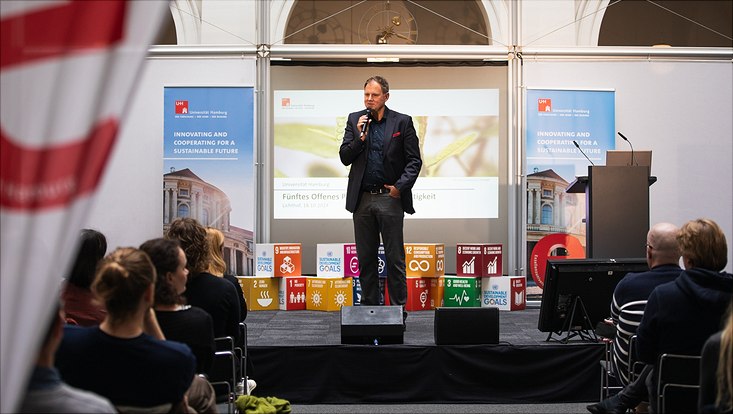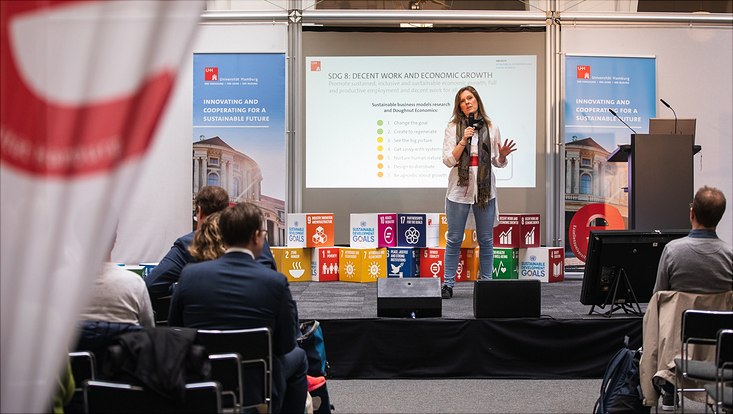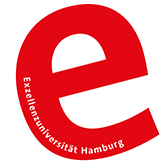Open Plenum 5.0Prizes Awarded for Sustainability Concepts at the University of Hamburg
21 October 2024, by Newsroom editorial office

Photo: University of Hamburg/Göttling
Open Plenum 5.0 was a venue for lively exchange about the University of Hamburg’s various sustainability topics and projects. The Sustainability Office once again awarded 3 prizes to staff and students for their concepts. First place went to the University of Hamburg Business School.
The project Tracking Sustainability-Related Content through Module Handbooks—submitted by Matthew Fennessy, Dorothea Alewell, and Simone Neumann from the University of Hamburg Business School—records how much teaching content deals with ethics, responsibility, and sustainability (ERS). For this, not only were existing module handbooks analyzed, but professors were also presented with content checklists that must be filled out when submitting modules for the new module handbooks. This should ensure that the development of sustainability, among other things, is monitored in the future, as numerous surveys and discussions with students show that ERS topics are very important to them.
Second place went to Simon Scheurer for his proposal to set up a repair and upcycling workshop on campus. The workshop should enable students to repair their everyday objects and become a place of creative realization where students can upcycle old objects without having to buy new ones.
“Process of transformation toward sustainability”
Marco Hansen was awarded third place for his proposal to submit final theses only digitally in the future. The examinations manager at the Faculty of Humanities calculated that 5,660 degrees per year and 3 paper final theses each mean 16,980 theses with various numbers of pages. At an average of 30 pages per bachelor’s thesis, that is 509,400 pages of paper per year, while some master’s theses run as high as 80 pages. In terms of sustainability, these pages could be saved if theses were submitted only digitally.
The award ceremony was integrated into the exchange format held once a semester by the University of Hamburg Sustainability Office headed by Prof. Dr. Laura Marie Edinger-Schons, where the Sustainability Office team provides an update on the status of the transformation and discusses current research findings with University staff and students. This time, keynote speaker Prof. Dr. Grischa Perino from the Department of Socioeconomics at the Faculty of Business, Economics and Social Sciences shared his research findings with those in attendance. Sustainability initiatives and various working groups reported on their work.
“I am proud that we have already launched a considerable number of initiatives that contribute to the promotion of sustainability in science, teaching, and daily interactions. Since the last open plenum, which took place in April of this year, quite a bit has happened again,” said the University’s president Prof. Dr. Hauke Heekeren at the opening of the plenum. “The University of Hamburg is thus undergoing a process of transformation toward sustainability, which presents many challenges. In order to manage this process well, the University must be an agile and capable organization.”
Excellence Strategy of the Federal and State Governments
CSO Laura Marie Edinger-Schons’ professorship and the Sustainability Office she leads are funded by the Excellence Strategy of the Federal and State Governments.



